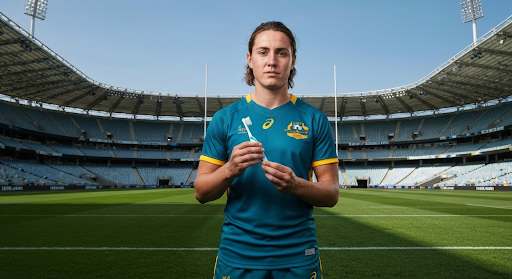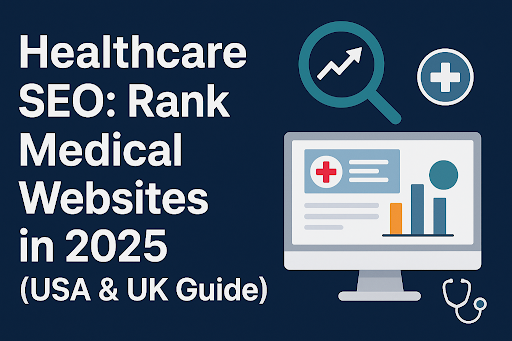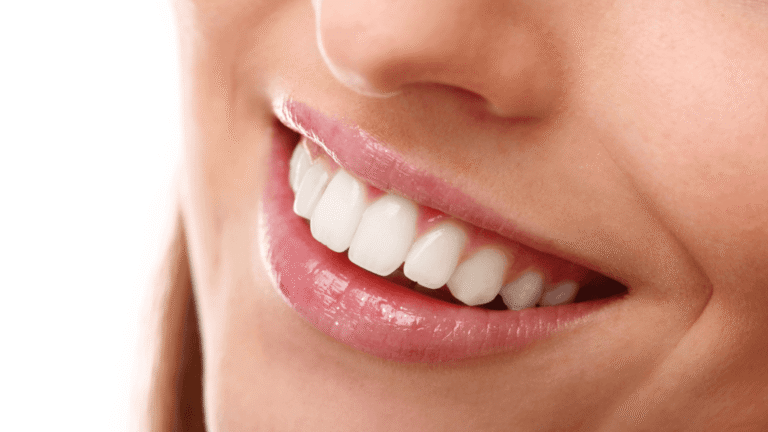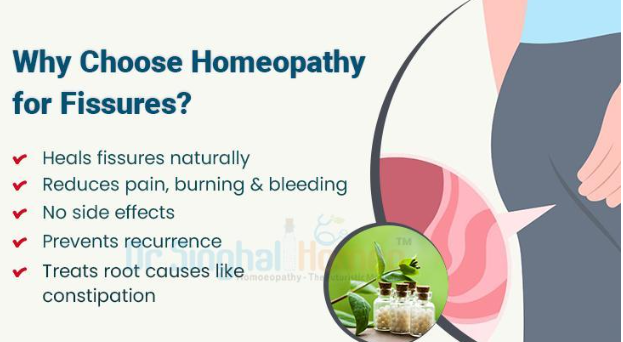Dental Care Tips for Australian Sports Athletes
Introduction
As an Australian athlete, you know that peak physical condition is key to your performance. But have you considered how your dental health fits into that picture? A healthy smile is more than just about looks; it’s a critical component of your overall well-being. Protecting your teeth from injury and decay ensures you stay in the game without painful distractions. Whether you’re starting your orthodontic journey or maintaining your smile, a solid treatment plan for your oral health is a winning strategy.
Essential Dental Care Tips for Australian Sports Athletes
Engaging in sports places unique demands on your body, and your mouth is no exception. Athletes often face a higher risk of dental injuries, especially in contact sports, and the intense physical exertion can create conditions that lead to tooth decay if not managed correctly.
Prioritising your dental health is just as important as your training regimen. By following a few essential tips, you can protect your teeth, ensure your orthodontic treatment delivers the best results, and keep your smile healthy for years to come. For athletes seeking expert care, consulting an orthodontist in Toowoomba can provide tailored advice and treatment plans designed to meet the unique demands of an active lifestyle. These guidelines will help you navigate the specific challenges athletes face.
1. Use Custom-Fitted Mouthguards During All Sporting Activities
One of the most effective ways to protect your smile is by wearing a mouthguard during all training and game days, especially in contact sports. A sudden impact can lead to chipped, broken, or even lost teeth. If you are undergoing orthodontic treatment, such as using invisible braces in Brisbane, a blow to the face could also damage your braces or aligners, causing pain and delaying your progress.
While generic mouthguards are available, a custom-fitted one from your dentist offers the best protection. It is moulded specifically to your teeth, ensuring a secure and comfortable fit that won’t slip out at a critical moment. This is the best option for safeguarding both your natural teeth and any orthodontic work. Your orthodontist can advise on a range of solutions to suit your needs, whether you have:
- Traditional metal braces
- Ceramic braces
- Clear aligners
Investing in a custom mouthguard is a small price to pay for peace of mind. Various orthodontic treatments are available in Toowoomba, and protecting your investment with a proper mouthguard is a crucial part of any dental services plan for an athlete.
2. Maintain a Consistent Oral Hygiene Routine
A rigorous oral hygiene routine is non-negotiable for athletes. Sweating and heavy breathing can lead to a dry mouth, creating an environment where bacteria thrive. If you wear braces, this becomes even more critical, as food particles can easily get trapped around brackets and wires, leading to plaque buildup, cavities, and gum inflammation.
To keep your teeth and gums healthy, you must be diligent with your cleaning habits. This dedication ensures your orthodontic treatment is successful and leaves you with a truly healthy smile. A good routine includes:
- Brushing after every meal with fluoride toothpaste to remove food particles.
- Flossing daily, using orthodontic flossers if you have braces.
- Rinse with water after a snack or sports drink if you can’t brush immediately.
Your first orthodontist appointment in Toowoomba will typically involve a thorough examination, including scans and photos, to create your personalised treatment plan. This is the perfect time to discuss the best oral hygiene practices for your specific needs to ensure your teeth stay healthy throughout your journey.
3. Schedule Regular Dental Check-Ups and Sports-Specific Assessments
Staying on top of your dental health requires a proactive approach. Regular appointments with your dentist are essential for catching potential issues early before they become serious problems. These check-ups allow for professional cleaning and assessment, which is especially important when you are physically active and potentially exposing your teeth to more risks.
For athletes undergoing orthodontic treatment, these visits are supplemented with regular orthodontic appointments, typically every six to eight weeks, to adjust braces and monitor progress. If you’re looking for the best orthodontist in Toowoomba, seek recommendations and check the credentials of practitioners who can provide this consistent care. A sports-specific assessment can also ensure your mouthguard fits correctly and offers maximum protection.
A typical schedule helps maintain optimal dental health throughout your athletic career.
| Appointment Type | Recommended Frequency | Key Purpose |
| General Dental Check-up | Every 6 months | Professional cleaning and decay prevention. |
| Orthodontic Adjustment | Every 6–8 weeks (during treatment) | Monitor progress and adjust appliances. |
| Sports Dental Assessment | Annually or pre-season | Check mouthguard fit and assess injury risk. |
4. Be Mindful of Sports Drinks and Nutrition Choices
What you eat and drink has a direct impact on your dental health. Many popular sports drinks are loaded with sugar and acid, which can erode tooth enamel and lead to tooth decay. While they might provide a quick energy boost, they pose a significant threat to your smile. Whenever possible, opt for water to rehydrate.
Your overall nutrition also plays a vital role. If you have braces, it’s particularly important to avoid certain foods that can damage your brackets and wires. Damaging your braces can be a costly mistake, and it’s important to remember that the average cost of braces in Toowoomba can vary, so protecting your investment is key. Your oral habits should include avoiding:
- Hard foods like nuts, hard lollies, and ice.
- Sticky foods such as caramel and chewing gum.
- Crunchy snacks like corn chips and popcorn.
Instead of avoiding them completely, you can cut hard fruits and vegetables into smaller, bite-sized pieces. Making smart nutrition choices is a core part of the dental services you provide for yourself, ensuring your treatment stays on track.
5. Stay Hydrated with Water to Protect Your Teeth
Hydration is crucial for athletic performance, but the type of liquid you choose matters immensely for your dental health. Intense physical activity often causes dry mouth, which reduces saliva flow. Saliva is your mouth’s natural defence mechanism; it washes away food debris, neutralises acids, and helps prevent tooth decay.
When your mouth is dry, your risk of developing cavities and gum disease increases significantly. Sipping water regularly throughout your training sessions and games is the best way to combat dry mouth and maintain hydration. Unlike sugary sports drinks, water cleanses your mouth and supports healthy saliva production without any harmful side effects.
Staying hydrated with water not only benefits your overall health but also makes your orthodontic journey smoother. It helps keep your teeth and gums clean, reducing the chance of complications. Some clinics offer payment plans for orthodontic treatments in Toowoomba, and preventing costly issues like decay helps you manage that investment wisely.
6. Avoid Chewing on Hard Objects or Ice
Many people have nervous habits like chewing on pens, biting their fingernails, or crunching on ice. For an athlete, especially one with braces, these habits can be disastrous for their oral health. Chewing on hard objects can easily chip or crack your teeth, but it can also break the brackets and bend the wires of traditional braces.
This kind of damage can cause significant discomfort and requires an emergency visit to your orthodontist for repairs. Broken appliances can’t do their job correctly, which often leads to delays in your orthodontic treatment. These complications mean you will have to wear your braces for longer than originally planned.
Whether you have traditional braces or another orthodontic treatment, it’s important to be mindful of these habits. Protecting your orthodontic appliances is just as important as protecting your teeth themselves. Being conscious of what you put in your mouth can save you from unnecessary pain and setbacks on your path to a straighter smile.
7. Protect Teeth from Teeth Grinding with a Nightguard
Teeth grinding, also known as bruxism, is a common issue that can be heightened by the stress and intensity of athletic competition. Many people grind their teeth in their sleep without even realising it, leading to worn-down enamel, jaw pain, and headaches. Over time, this can cause significant damage to your teeth.
If you are undergoing or have completed orthodontic treatment, grinding can compromise your results. For those with braces, it can add extra pressure to the brackets. After your treatment is complete, grinding can cause teeth to shift out of their new alignment, undoing all your hard work. This is why the retention phase is so important for achieving the best results.
Your orthodontist can create a custom-fitted nightguard for you to wear while you sleep. This appliance acts as a protective barrier between your upper and lower teeth, absorbing the force of grinding. Whether you have just finished treatment with clear aligners, available from many orthodontists in Toowoomba, or are looking to protect your natural teeth, a nightguard is an excellent tool for preservation.
8. Manage Dry Mouth to Reduce Risk of Tooth Decay
As mentioned, dry mouth is a common side effect of intense physical exertion. Reduced saliva flow means your mouth loses its ability to naturally cleanse itself of harmful acids and bacteria. This significantly increases your risk of tooth decay and gum disease, which can sideline an athlete just as effectively as a physical injury.
While drinking water is the top recommendation, there are other ways to manage dry mouth. Chewing sugar-free gum can stimulate saliva production, but this is only an option if you don’t have braces. Maintaining excellent oral hygiene by brushing and flossing diligently is also crucial to remove the plaque that builds up more quickly in a dry environment.
If you consistently suffer from dry mouth, it’s important to discuss it with your dental expert team. They can recommend specific products or strategies to help manage the condition. Since orthodontists in Toowoomba treat both children and adults, they can provide tailored advice for athletes of any age dealing with this issue.
9. Address Any Dental Injuries Immediately
In sports, accidents happen. If you experience a dental injury, whether it’s a knocked-out tooth, a chip, or a broken bracket, your first step should always be to seek professional help immediately. Delaying treatment can lead to serious complications, including infection, nerve damage, or even the need for extractions that could have been avoided.
When a dental injury occurs, contact your dentist or orthodontist right away. They can provide instructions on what to do and schedule an emergency appointment to assess the damage. A swift response can often save a tooth or prevent minor damage from becoming a major problem, ensuring your treatment plan stays on track.
If you have braces and a bracket or wire comes loose, try to keep the broken piece and bring it with you to your appointment. Don’t try to fix it yourself. Promptly addressing dental injuries is the best way to protect your long-term oral health and the investment you’ve made in your smile.
10. Educate Yourself About the Impact of Medications on Oral Health
Many athletes rely on medications, such as inhalers for asthma, to manage health conditions. However, it’s important to be aware that some of these can have side effects that impact your oral health. For example, many inhalers can contribute to dry mouth, which, as we’ve discussed, increases the risk of tooth decay.
When you have an orthodontic consultation, it is the perfect opportunity to inform your dental team about any medications you are taking. This information allows them to create a personalised treatment plan that accounts for your unique needs and any potential risks. A qualified orthodontist with specialised training will understand these connections and can offer advice to mitigate negative effects.
By having an open conversation about your overall health, you empower your dental team to provide the best possible care. This proactive approach ensures that all factors are considered in your journey toward a healthy, beautifully aligned smile.
Conclusion
In conclusion, maintaining optimal dental health is crucial for Australian sports athletes. By following these essential tips, such as using custom-fitted mouthguards and staying hydrated, you can significantly reduce the risk of dental injuries and ensure your smile remains healthy and bright. Moreover, being proactive about your oral hygiene routine and scheduling regular dental check-ups will help catch any potential issues before they escalate. Remember, your dental health plays a vital role in your overall performance and well-being as an athlete. If you’re ready to take charge of your dental care, consider seeking a consultation to get personalised advice tailored to your sporting needs. Your smile deserves the best care!
Frequently Asked Questions
What should I do if I experience a dental injury while playing a sport?
If you suffer any dental injuries, contact your dentists or orthodontic specialist immediately. Quick action is key to preventing further complications and can often save a tooth. Your dental professional will assess the damage and create a treatment plan to get your oral health back on track without delay.
How can young athletes protect their teeth during contact sports?
The most effective way for young athletes to protect their teeth during contact sports is by wearing a custom-fitted mouthguard. This protects teeth and any orthodontic appliances from impact. Combining this with early intervention and regular dental visits is the best strategy for maintaining a healthy smile throughout their athletic journey.
Are there dental care differences between child and adult athletes in Australia?
Yes, while the basic principles are similar, care is tailored to different age groups. Children’s dentistry focuses on guiding the development of teeth, making early intervention key. For adult teeth, the focus may be on more complex orthodontic treatment or maintenance. Each orthodontic journey is designed to meet the unique needs of the individual.
Keep an eye for more latest news & updates on Well Health Organic!






